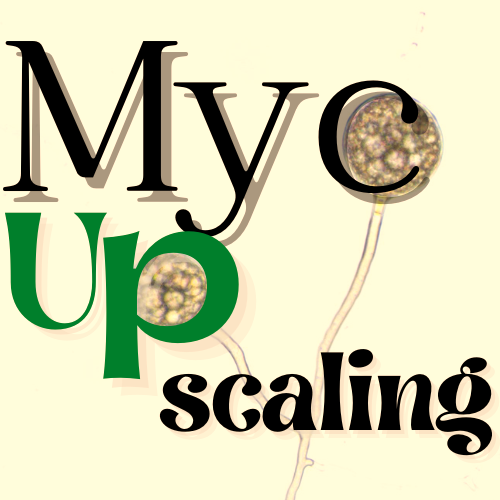MycUpscaling
The root for the production of new generation of bio-fortified Mycorrhiza for applications in agrosystem
Why We Need- MycUpscaling
MycUpscaling (Upscaling in vitro arbuscular mycorrhizal fungi inoculum production via combinatorial lipid metabolic engineering of host plants) was a project funded by the European Commission through the "Marie Skłodowska-Curie Actions - Individual Fellowship/Global Fellowship (H2020-MSCA-IF-2020-GF)",within Horizon2020 (Project N. 101018013) https://cordis.europa.eu/project/id/101018013 . MycUpscaling provided financial support to the Marie Skłodowska-Curie Fellow, Dr. Mahmoud Gargouri, to receive high-level training-through-research, with the aim of deepening and diversifying his scientific expertise.
MycUpscaling
"Climate change is hard to tackle. There are two ways to cope - animals run away, plants-microbes adapt. Plants feed microbes with sugars and lipids, and microbes help plants to deal with harsh conditions. We want to engineer this symbiotic interaction with microbes and to develop cost-efficient large-scale bio-fortified microbial inocula"
An advanced genetic strategy for increasing crop yield
Soil microorganisms, including arbuscular mycorrhizal fungi (AMF), one of the most widespread and functionally important symbioses on earth, have enormous potential for promoting sustainable agriculture and food security. However, the mass production of a safe and robust inoculum, produced in vitro at an affordable cost, remains difficult. The EU-funded MycUpscaling project will address this challenge and determine the genes responsible for increasing triacylglycerol (TAG) accumulation in the symbiotic interface and for increasing spore numbers to create high-quality, cost-effective AMF inoculants for application in agroecosystems. The project will include combinatorial lipid metabolic engineering, selection of mycorrhized TAG-accumulating hosts, in vitro and in vivo lipid flux analysis and in vitro spore domestication. This target required a multi-disciplinary research activity, combining materials science, and specific equipment. Such an approach was possible by merging competences of the two international experts involved in the project and making use of laboratory facilities available at the two hosting Organizations.
What We Do
We bridge the world of knowledge transfer, fundamental and applied research
Within MycUpscaling, having a total duration of 36 months, Dr. Gargouri will work at 2 different host Institutions, under the supervision of internationally renowned Experts:
- for 24 months at Washington State University (USA), working with Prof. Philip D. Bates;
- for 12 months at the Université Catholique de Louvain (Belgium), working with Prof. Stephan Declerck; (Coordinator of MycUpscaling)
- Not only academic experience! but also short stay at European biofertilizer companies.
We do research for sustainability
Modulating the symbiotic interface apparatus in order to improve its capacity to mass-produce low-cost bio-fortified spores will reduce the need for fertilizer input and constitute a key challenge of today’s research and future sustainable agriculture.

We develop new in vitro process to make the world move
In vitro AMF production systems based on bi-compartmented Petri plates with Root Organ Cultures (ROC), Half-closed Arbuscular Mycorrhizal - Plant (HAM-P) and Mycorrhizal Donor - Plant (MDP) culture system, and production in mist bioreactor with hairy root organs.
If you are interested to catch up! and to learn about all these in vitro culture AMF methods- Go and register here: International Training on In Vitro Culture of Arbuscular Mycorrhizal Fungi
Questions?
Contact US to get more information on the project
